Crossing the Lines: Park Gives Windsorites a Sense of Place
WDET’s series explores what divides and unites Detroit’s Canadian neighbors.
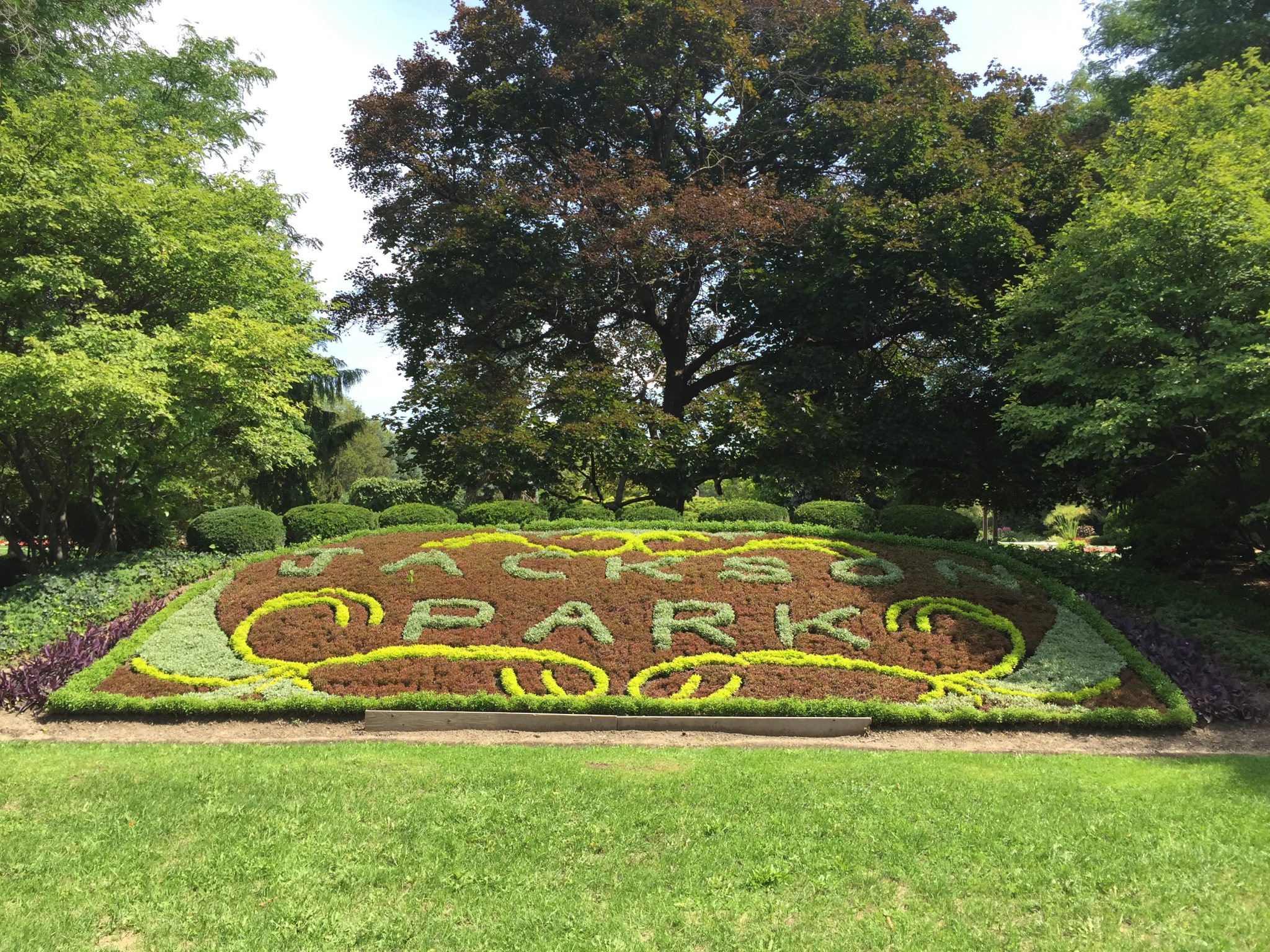
WDET’s Crossing The Lines series is crossing the border to explore Windsor, in search of things that unite Detroit and its Canadian neighbors. In both cities, parks are a source of community pride as well as recreation. Windsor resident Rick Kemler says he comes to Jackson Park at least once a week because it’s like no other.
“Oh, this is our Central Park of Windsor. It’s 60 acres of everything, you’ve got lawn bowling, tennis courts inside, out, we’ve got a splash pad on the other side, a kids playground, you got a flower garden bar none, just chock full and thick of flowers.”
On the WDET’s Pat Batcheller visited Jackson Park, Kemler brought his accordion and played a song befitting the weather—sunny skies and 28 degrees Celsius—That’s 82 Fahrenheit. While Rick plays
“Un bel di vedremo” from Giacomo Puccini’s “Madama Butterfly”, a Windsor parks employee tends to the landscaping surrounding a nearby monument. Jackson Park is well-known for its memorials, ranging from those honoring Canadian service members who died in battle to genocide victims in Bosnia and Ukraine.
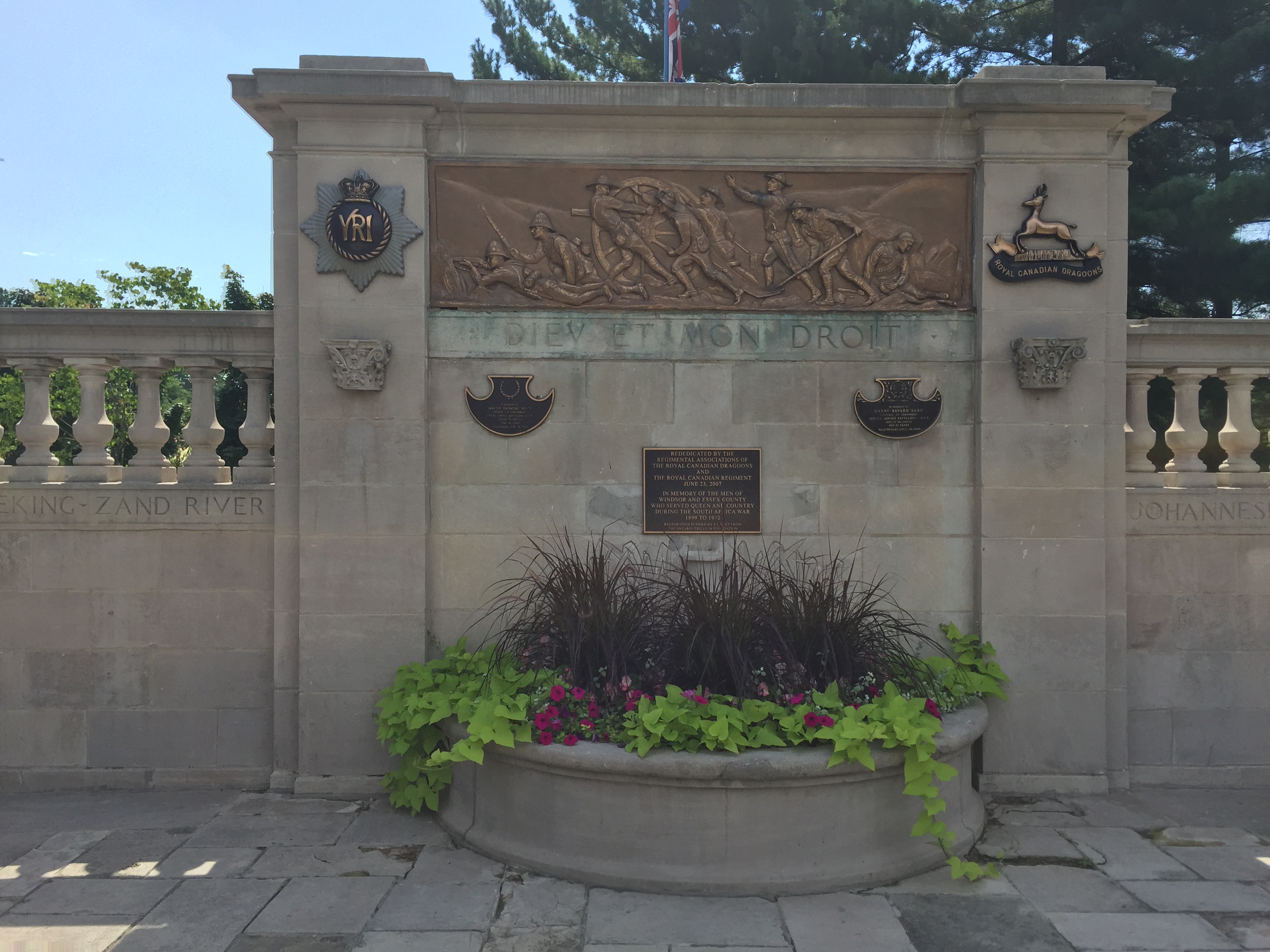
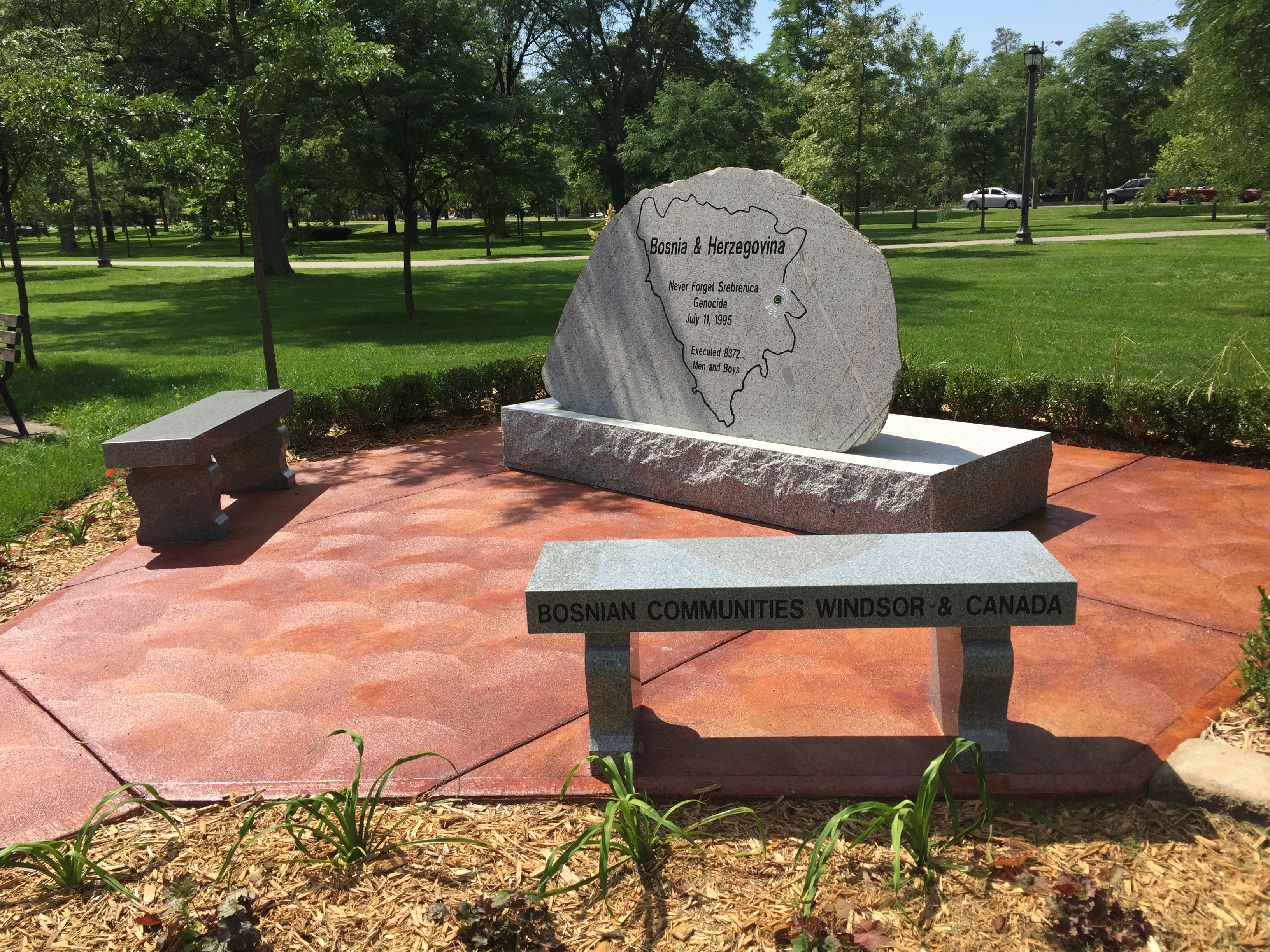
Perhaps the park’s most recognizable monument is the World War Two memorial. You have to look up to see its main feature—mounted replicas of two Canadian fighter planes. These models replaced a Lancaster FM 212 built at the end of the war and used as a photo plane in northern Ontario. The Lancaster was removed in 2005 to repair the effects of exposure to Windsor’s changing weather. But it still has a formidable presence in Jackson Park. Windsor Parks Supervisor Denise Kalas points to the base beneath the replica fighters.
“So when they removed the Lancaster bomber to restore it, and put the Spitfire up, they made a shadow underneath the plane so that the Lancaster will always be here.”
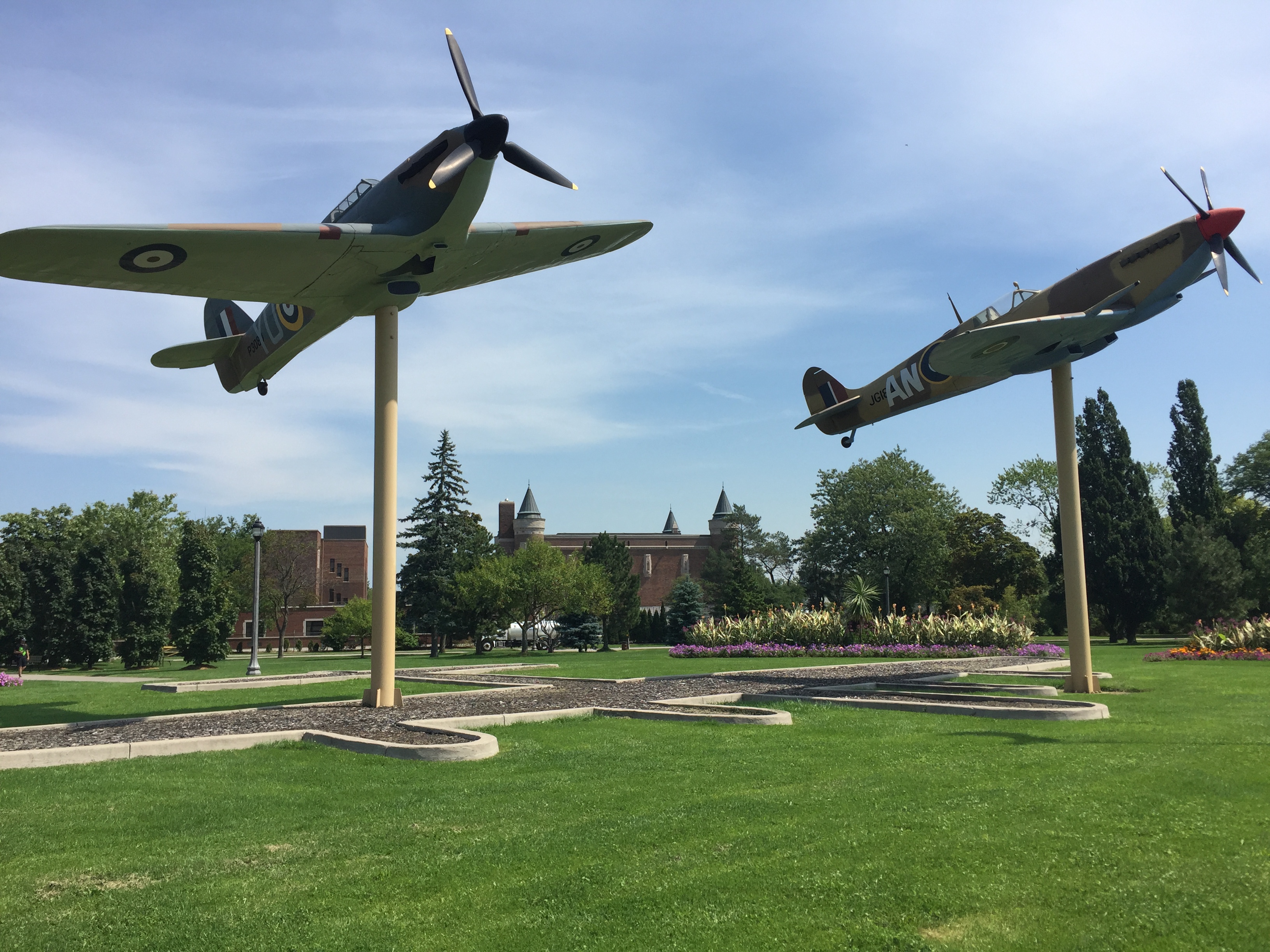
Kalas says every section of Jackson Park is intended to give visitors a sense that it belongs to them.
“Each park means something for each person. Could be they had their first kiss here, or they met here, each park has a special memory,” Kalas says.
Jackson Park covers 60 acres of land, which is a lot to maintain. In the summer, the city hires students from the University of Windsor and other colleges to work as groundskeepers. Tariro Manyewe came to Windsor from Zimbabwe to study business administration. He doesn’t know yet what kind of business he wants to get into, but says he is getting hands-on experience in one possible field.
“This has helped me like, uh, by talking to other gardeners, to know, like, I might go into landscaping or like different, you know, like working the park, what business do you like?” Manyewe says.
Whether summer workers are raking, planting, weeding, or cleaning Jackson Park, UW student Madison Sturba says the hard work helps bring her future into focus.
“I’ve been really unsure about what I want to do, and working in a park, working outdoors, has made me realize I like environmental. I don’t know what I’m going to do, but I kind of want to start gearing my studies toward this,” Sturba says.
Maintaining Jackson Park has been especially challenging this summer because of the drought in southern Ontario. Windsor Parks Supervisor Denise Kalas says recent rains have restored the grass from a crunchy brown to a lush green. Water trucks deliver moisture where it’s needed. And this year, the city is using water bags to help newly planted trees survive the dry weather.
“And each water bag holds, probably, 25 litres of water, and it trickles. There’s just a few small holes in the bottom. And it slowly waters the plants. So this gives the plants, and the trees, I should say, a much better chance of living,” Kalas says.
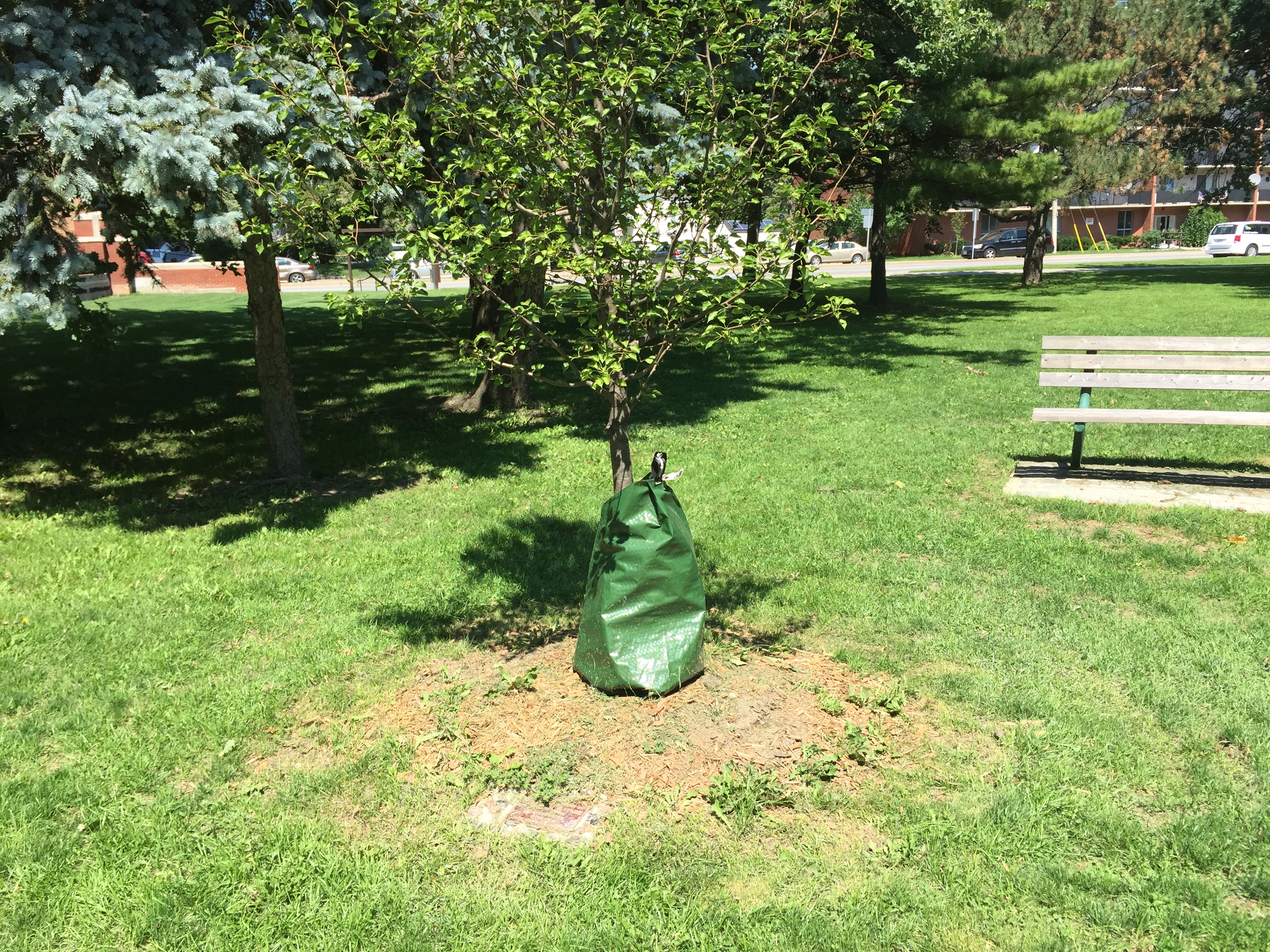
Of all the plants that grow in Jackson Park—about 10-thousand or so—the most colorful reside in the Queen Elizabeth II Gardens—also known as the Sunken Gardens. Windsor’s nickname is “The City of Roses”, but you won’t find many here. After Ontario banned pesticides in 2009, the city removed many of its parks’ rose beds. Jamie Kell, who oversees maintenance at Jackson Park, says Windsor could no longer afford to tend these delicate, expensive flowers.
“Disease, winters, maintenance, it just—everything just kind of—accumulated, and the cost to replace them,” Kell says.
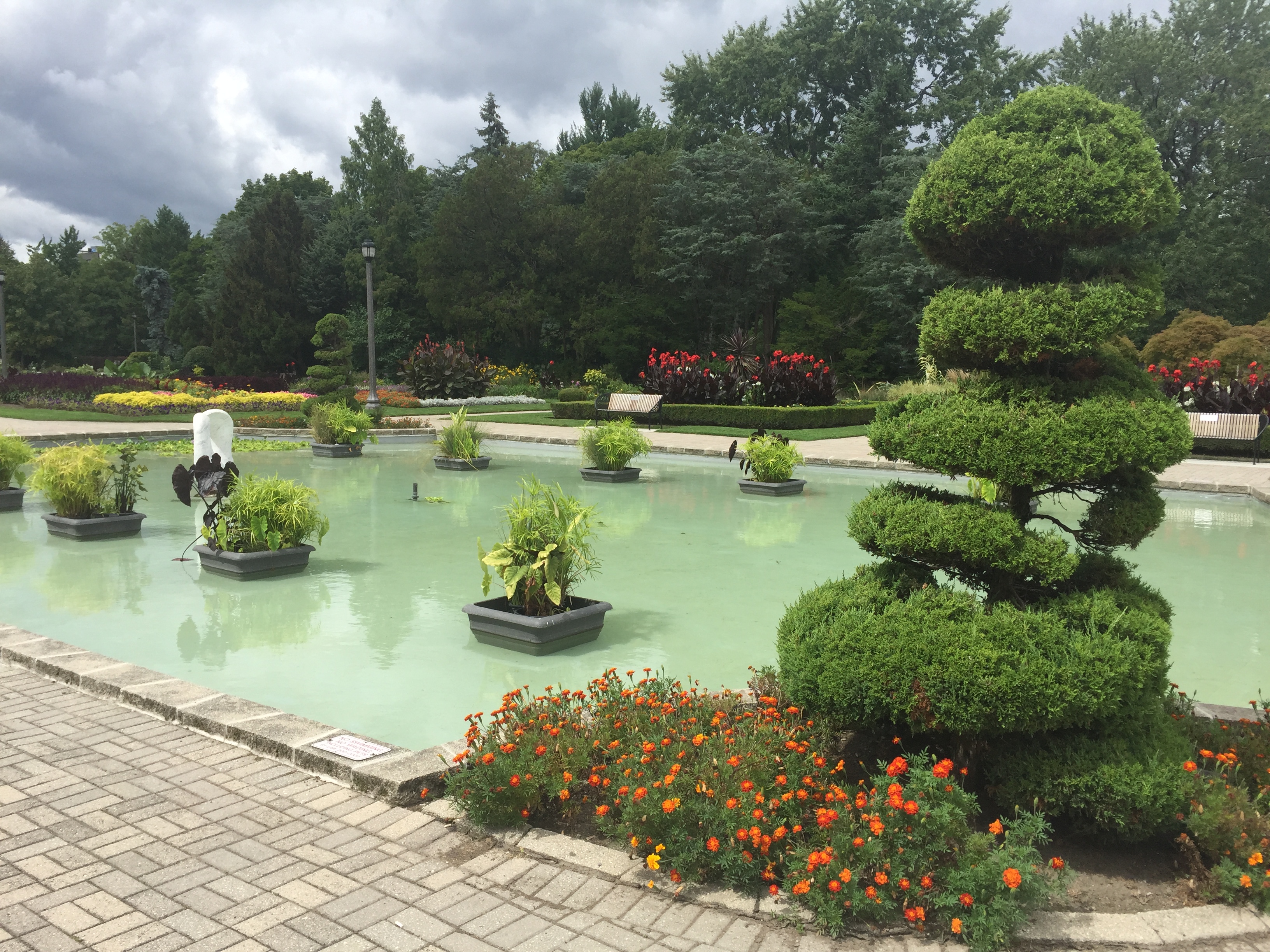
Windsor’s official rose, the more disease-resistant “Love’s Magic”, does grow in Jackson Park. But Jamie Kell also finds some magic in the flowers that grow near the park’s main gate at the corner of Oulette Avenue and Tecumseh Road.
“When people drive by, I think the floral garden-it gives people ‘Wow! That’s someplace I’d like to visit.’ They’ve never been here. It’s shocking, it catches their eye, it’s inviting,” Kell says.
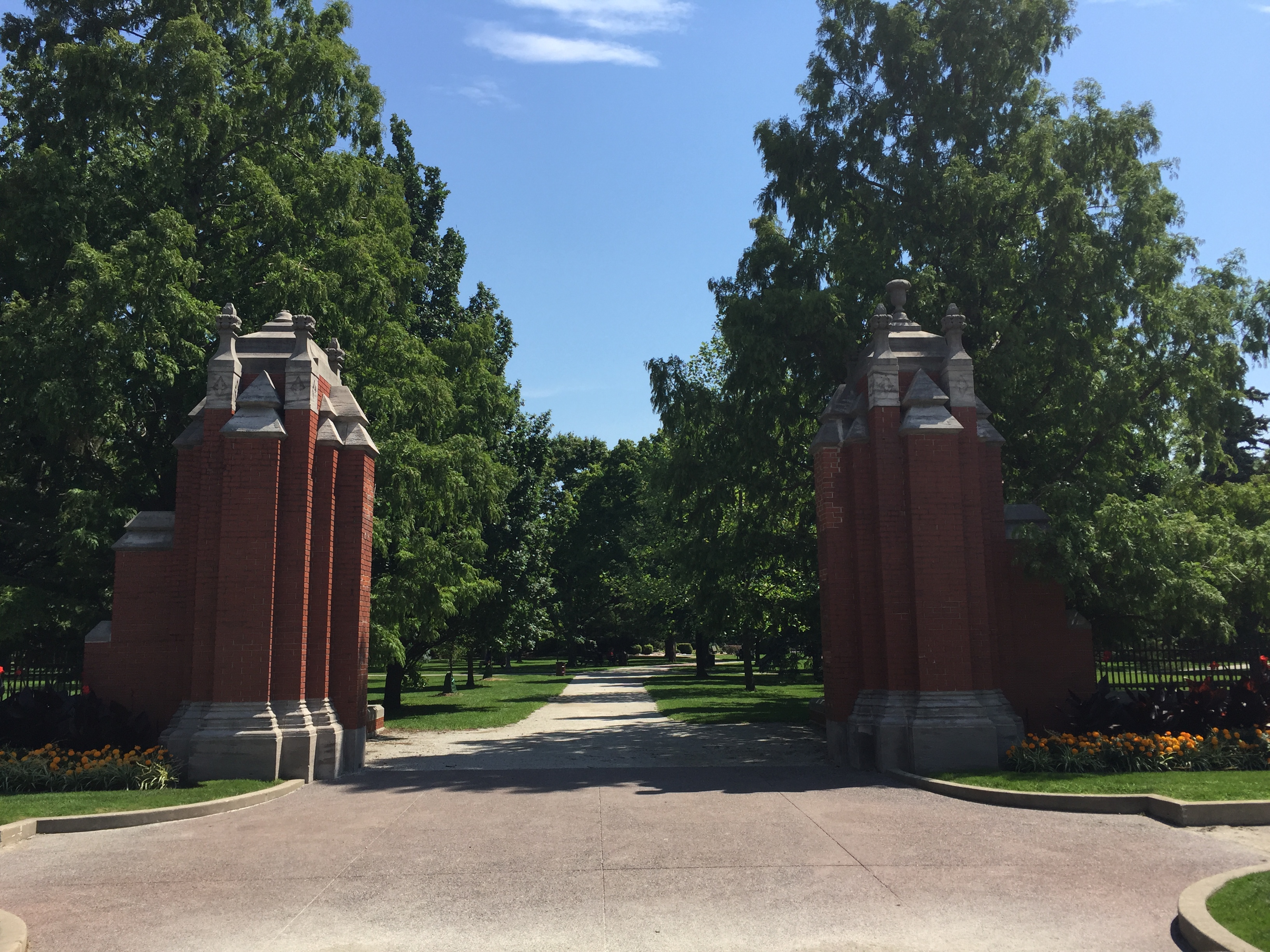
It may be a little bit more inviting right now, because the wrought-iron gates at the main entrance have been taken down for maintenance…leaving Jackson Park wide open for anyone who wants to wander through and enjoy its charms.
